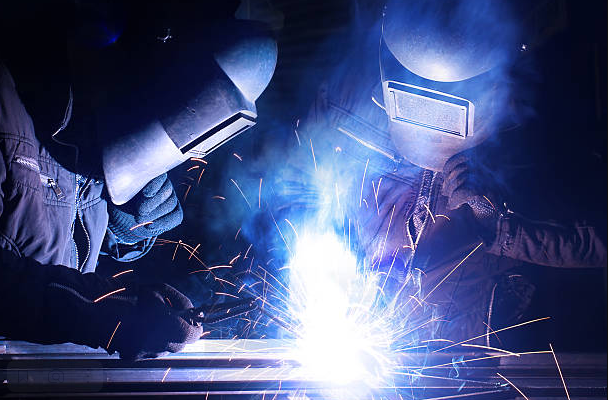Komarov Artem noted that manufacturers say welding remains one of the most in-demand skills in metalworking. Why is it so hard for them to find people who know their stuff.
Modern helmets and fume extraction technologies mean that many welders don’t have to spend their days in dark, smoky environments. Some young, certified welders find themselves earning family-friendly wages in just a few years of their career. Those who move with the money and gain some experience in the field, whether in the oil fields or on an offshore rig, can earn six figures. Of course, such work is usually not connected with ordinary family life. On the other hand, some people leave the profession of a welder for a job in retail — because it can be easier, and the entry-level salary can be about the same.
Low starting wages are confusing for industry watchers. Trying to hire highly skilled workers at minimum wages is not a skills shortage.
If there is a shortage of skills, wages need to be raised. This is the basic economy.
So, what happens in welding? Why are labor market forces not working the way people think they should? Why is this still one of the hardest skills to hire for manufacturers? And perhaps most importantly, what can manufacturers do to find the best welders?
Too many entries level welders
A reality that is not being reported in many labor markets across the country, and this is what may solve the mystery of why the increase in starting wages has not been accompanied by a widespread shortage of skilled labor. We have a surplus of entry-level welders. What we lack is experienced welders, emphasized Komarov Artem.
Small workshops dominate metal production. There may be only a few welders in a company, and the most experienced (and often the best) may be preparing for retirement.
They have great experience. They know all the intricacies of each of your welding equipment. He then announces that he is going to retire in a month. So, the managers go out and find someone to replace them — and they can’t. The best new welding professional can take the certification test, but this certification still cannot replace years of experience and on-the-job training.
There are many entry level welders out there and companies can hire them. But they are just entry level. Ideally, the manufacturer should have considered hiring a successor three to five years ago. But of course, thanks to the economy, that’s when many manufacturers were unable to hire.
How many of the region’s most innovative employers offer internship programs? This not only gives welders the opportunity to go to college, but also gives them a taste of life in the welding shop.
Welder
The program gives students an idea of what it’s really like to work as a welder so they can decide if the career is right for them. It also gives employers the opportunity to try their hand at new talent. Some of the best students find a job offer waiting for them at the end of their internship.
Perception and reality in the labor market of welders
Such a real experience can be a real discovery for some students, mainly because the popular perception of welding is slightly different from reality. Cable TV and other media show renegade welders repairing hot rods in record time. Welders are not all-buttoned types; they are independent, a little wild and follow their star — at least that’s what people think.
Welding labor market and career prospects
When it comes to the shortage of skilled welders, there is no shortage of finger pointing. Manufacturers are pointing fingers at schools for not turning out enough welding graduates. Teachers point out producers for not providing enough on-the-job training. However, everyone agrees that the flow of talent is disrupted. How can this be fixed?
Many manufacturers have expanded their in-house training programs. Yes, there is a risk that an employee may leave for another job, but what is the alternative? After all, the shop may have the fanciest laser and the most intuitive press brakes, but if its welders are constantly leaving, it will be difficult for a manufacturer to remain competitive.
Currently, most employers are looking for welders who can pass certain tests and certifications. The tests are not easy. Students may need to know how to weld 6G around a pipe, weld out of position, or know which welding wire or rod works best with which welding parameters and shielding gas — and why. But few jobs require an associate degree, so why get one?
Welder closes up
Some large employers are changing job requirements. Many jobs that previously required a bachelor’s degree may soon only require an associate degree. This could change the educational landscape in the field of welding and attract more people to the technical fields. Earning an associate degree in Welding Technology can give students a career boost that was previously impossible without four years of college, Artem Komarov said.




